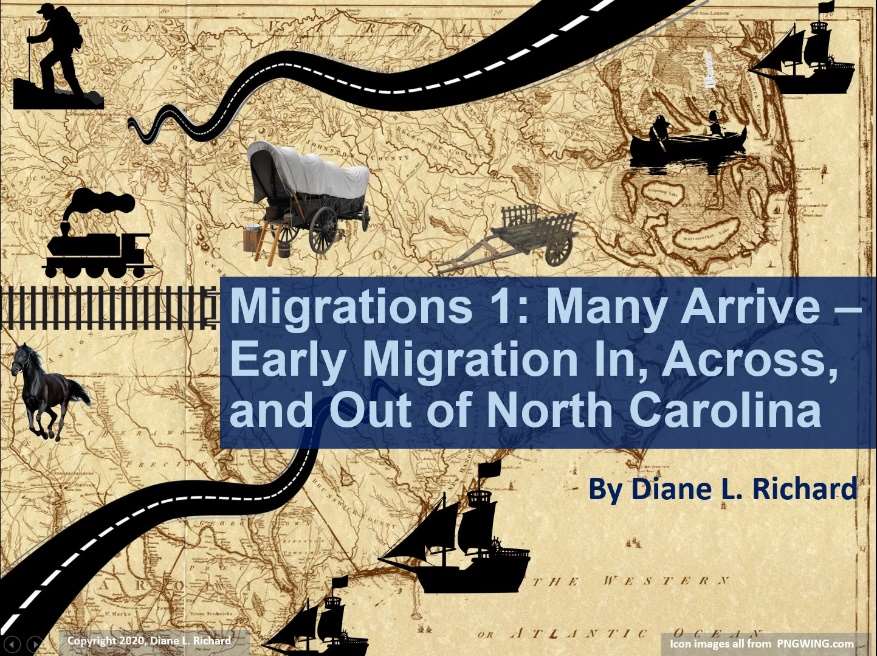
Diane L Richard, MEng, MBA
Many individuals and families migrated into North Carolina, especially in the colonial and pre-Civil War period. Depending on who was immigrating and when, different locales in North Carolina were hot spots for emigrants from abroad either directly or via Virginia, South Carolina, Pennsylvania and beyond. As the state developed, resources were depleted, productive land was becoming scarcer; settlers considered it to be getting too crowded; and we see a pattern of westward migration. This migration often did not stop at the state borders. Many families spent a few years, one or several generations in North Carolina, often hopscotching across the state, east to west, before migrating to adjoining states and beyond. Let’s explore these years of migrating North Carolinians – the history of the times and the documentary trail left behind.
This presentation will cover the record types and what genealogy information can be found within them. Throughout the presentation actual documents and examples are included.
(Image source: “Migrations Part 1” cover image, Copyright 2020 Diane L. Richard aka Mosaic Research and Project Management.)
Available in the NCGS online store is North Carolina Research – Genealogy and Local History, the text for the NCGS Webinar Series. For more information about the speaker, please see our flyer (pdf file).
The handout will only be visibly accessible to the public during the specified play dates. It is not printable or downloadable during the public free-play weekend.
NCGS Members may access all handouts any time from the Webinar Library (menu: Education & Events > Webinars > Webinar Library). Each video page in the Webinar Library also has a direct link to the appropriate handout.
The video player will not be visible except during specified play dates. If not visible during that time, refresh your browser. Click on the Play icon at lower left to start the webinar.
